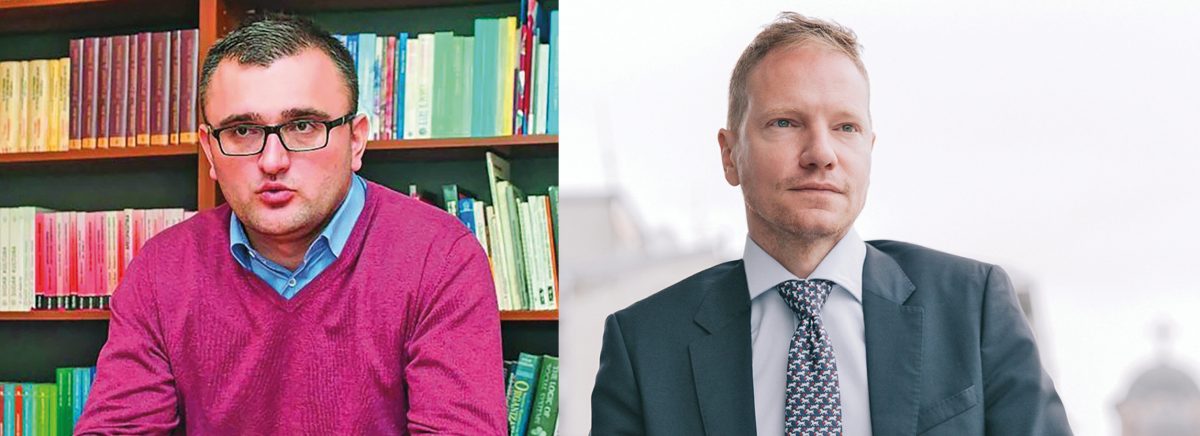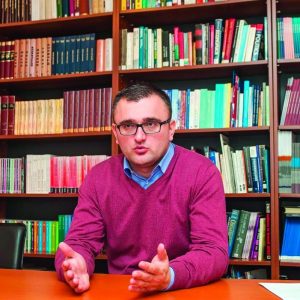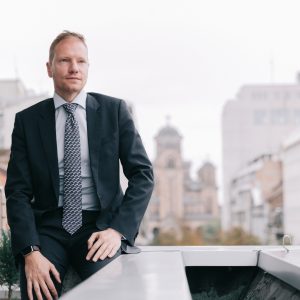
1. What do you think of the political scene in Serbia in the past year?
2. New elections await us in a year. Are the government and the opposition closer to dialogue or is that gap now much bigger compared to the period before last year’s elections?

Serbia is in a limited pluralism phase
1.In terms of politics, the year 2020 was one-of-a-kind in the short history of the Serbian multi-party system. Undoubtedly, the June 21st parliamentary election was the key political event. In the year behind us, the election process was interrupted and resumed (due to the coronavirus pandemic) for the first time in 30 years of multi-party system. Also for the first time, we had an election campaign without big rallies, forums and conventions. For the first time since 1997, part of the opposition boycotted the elections. Domestic politics was marked by high tensions, emotional narrative and an atmosphere that was always on the verge of an incident. The new parliamentary convocation is virtually without opposition, which means that Serbia has entered the limited pluralism phase. Although the new Serbian government has set high goals for itself, its work (as well as the work of the Parliament) is limited to the pre-announced elections, which will be held in the spring of 2022 at the latest. In fact, the key political institutions will be of a transitional character, and the informal start of the campaign will take place in the second half of 2021. The ruling party has stabilized support, while “the opposition’s boycott“ has received a slight wind in the back after the political parties that did not boycott the elections recorded poor election results. However, fragmentation in the opposition along with ideological differences and misunderstanding of its leaders did not lead to significant changes in the balance of power between political leaders.
2.The elections will be preceded by an inter-party dialogue between the authorities and the opposition on election conditions. That will be the central theme in the first half of 2021. The dialogue will not be easy and will look more like difficult political negotiations, instead of the usual political communication. Since Serbia is expecting elections to take place at three levels – early parliamentary and regular presidential and Belgrade elections – it will not come as a surprise if some of these elections are held in 2021 as well. This will be influenced by the political assessment of the ruling party and the outcome of the dialogue, which we cannot predict at this moment. Whenever the elections take place, they will be very important for the internal political processes in Serbia, because what ensues after them is a full mandate of the executive powers, a five-year presidential mandate and a full mandate of the Belgrade government. The possibility of major political changes at the national level is not great, but in case the entire opposition participates in the election, the political scene will be significantly reconfigured – the opposition will increase its political power, which is not great at the moment, the possibility of their action through institutional channels will be boosted and they will gain (at least ) basic financial stability. The changes are more realistic (under certain conditions) in the election for the Belgrade government and this election will be in the opposition’s focus. The ruling party will try to “neutralize” the opposition strategy in Belgrade by cooperating with Aleksandar Šapić, who will become the new regular partner of the SNS in the years ahead.

Dynamics often outweigh statics
1. The political scene can hardly be separated from the word ‘COVID’, which has been permeating our lives for the past twelve months. Apart from COVID, there was no other ‘earthquake’ that would get us out of the dead-end and save the political scene out of deep trenches and lethargy, where everyone is so relaxed that only one delivery service delivers ‘food’ and ‘supplies’ to everyone on that front, from either side of the trench.
Consolidation, as a process vital for any divided community, did not happen, the political scene remained in small feuds, and seemingly large political structures got their small feudal lords, who these days fill the front pages of some newspapers and go to war just to pass time, the only resource that none of us has in unlimited quantities, without making essential changes. But, as dynamics often outweigh statics, people in Serbia should know that the political scene, although seemingly unchanging, is in the turmoil that will become visible when COVID diminishes and when we get close to elections.
2. I am sorry to say that, eighteen months after the dialogue that we started at the Faculty of Political Sciences, with several months-long preparations beforehand, we are today again in the same place, discussing the same topics with the same domestic stakeholders and asking ourselves the same question, namely if there is political will to implement the agreed changes. The European Parliament has taken on the role of negotiator, and the Speaker of the National Assembly also has a clear role to play, which, along with the strange speeches of MPs who like to attack people who are not present in the Assembly, makes this dialogue very murky. What we still don’t know is whether everyone who is involved in politics recognizes that our society is rife with problems, which is the first step in solving them.
It is interesting to note that there is a lot more talk about the dialogue. It was also said that other areas will be covered by the dialogue too, not only the election conditions, which somehow take up the biggest space in the media. Speaking about other segments of our society, aside from this political pre-election segment, we see the need for dialogue in other important parts of society. In his interview for Radio and Television of Serbia, the newly elected patriarch of Porfirije spoke about the necessity of having a dialogue in society, which is the good wind in sails, with the president of the SANU, academic Kostić, saying the same earlier. When the Patriarch was asked by the presenter whether he would mediate in the inter-party dialogue, his answer was clear: “I never thought about it”.
It remains to be seen what we, as a society, have never thought about, as only a small number of people on the public stage talk about overcoming that gap and are working on overcoming it. There is still a clear division between “us” and “them”. The renaissance, that both Serbia and the entire region need, is not yet in sight.